#the tragedy of transhuman relationships
Text

the lodger and i have unreconcilable issues with one another, and the best part of my day is every morning when i look in their room hoping they are finally gone for good, but they have helped me in one meaningful way. if i meet someone new, and they say a room whose sole occupant is a cursed painting with an attitude problem is the weirdest thing they have ever seen, then i know we are probably starting too far apart to ever find a meaningful middle
happy first day in four months that i used my oven and didn't sweat through a tshirt imaginary constructs
#the tragedy of transhuman relationships#the lodger#keep passing the open windows#ambient electricity#mirror neurons#noble gases#spare rooms#squatters#setting free the bears#and it's five a.m and i'm crawling the walls just waiting for imaginary telephone calls#number eighty two#end of messages
23 notes
·
View notes
Text
Book recs: Queer science fiction, part 1
There is a lot of queer sf out there, and I read a lot of sf. When I started working on this list, I quickly realized it was impossible to include all that I've read and enjoyed in one single rec post. Thus, this is the first of so far three queer sci-fi book rec posts.
A note: queer here does not necessarily mean "guarantee of an f/f or m/m ship with a happy ending", but rather simply a significant presence of queerness. Some of the books feature no romance but has a same gender attracted/trans/a-spectrum lead, or features an m/f relationship with bisexual, trans or aro/ace characters, or simply features a world-building which is heavily queer inclusive in ways that don't always compare to our own ideas of sexuality and gender. I have however disqualified works where the only queer presence is along the lines of "gay best friend" or a blink and you'll miss it confirmation that never comes up again.

Previous book rec posts:
Really cool fantasy worldbuilding, really cool sci-fi worldbuilding, dark sapphic romances, mermaid books, vampire books, many worlds: portal fantasies, many worlds: alternate timelines, robots and artificial intelligences, post- and transhumanism, alien intelligences
For more details on the books, continue under the readmore. Titles marked with * are my personal favorites. And as always, feel free to share your own recs in the notes!

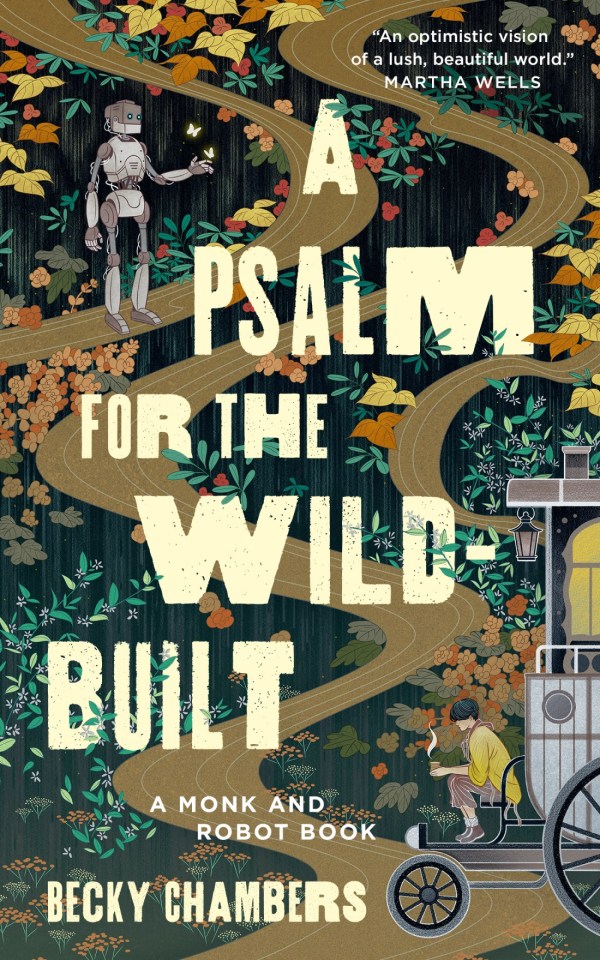
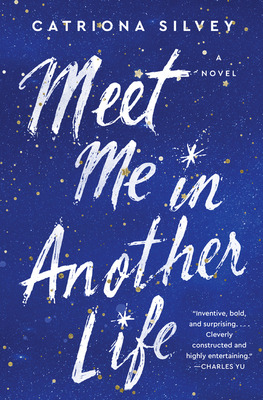
The Light Brigade by Kameron Hurley*
Dietz is a soldier in the war between Earth and Mars - to travel to the battle front, she and her fellow soldiers are broken down into light to be able to quickly travel across space. But something keeps going wrong with Dietz's travels; her memories don't match up with the mission briefs, as she experiences time itself turning in on itself. Is she going mad? Or are the things she's learning skipping through time the truth - and the war that's stealing her life the lie? A mindfuck of a book that's scathing in its critique of fascism and war. Features a sapphic lead but no romance.
A Psalm for the Wild-Built (Monk and Robot duology) by Becky Chambers
Novella. Long ago, robots, upon gaining sentience, simply laid down their work and walked into the wilderness. Long after, a tea monk looking for purpose follows after them into the wilds, where they come across one of the robots seeking its own sort of answers. While not plotless, this story focuses more on character and vibes over plot. Also has a nonbinary main character and features conversations on gender between human and robot.
Meet Me In Another Life by Catriona Silvey*
Thora and Santi are strangers, brought together by a coincidence and torn apart just as abruptly when tragedy strikes. But this is neither the first nor the last time they meet - again and again they encounter each other, as friends, lovers, enemies, family, every time recognizing in each other a familiarity no one else carries. But with every new life, a mysterious danger grows ever closer, forcing them to find out the truth of their connection. This is a puzzle-box of a story that goes some entirely unexpected places in a very wild ride, featuring a bisexual co-lead.
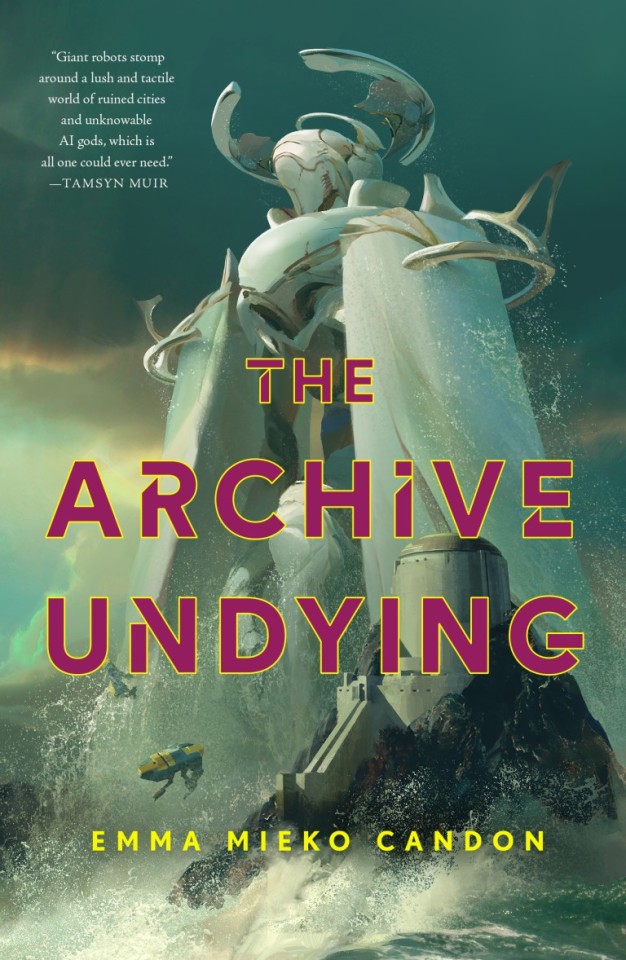
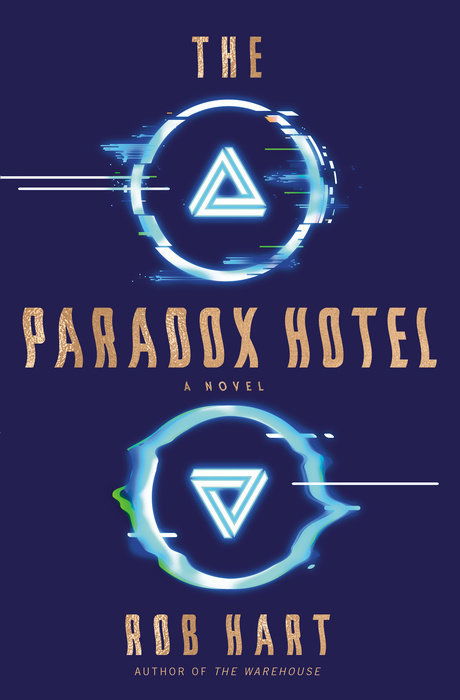
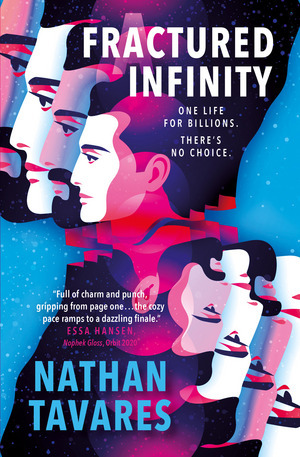
The Archive Undying (The Downworld Sequence) by Emma Mieko Candon
In a world where AI gods sometimes lose their minds and take entire populations down with them, Sunai was the only survivor when his god went down. In the 17 years since, he has wandered on his own, unable to either die or age, drowning his sorrows in drink and men. But his attempts to flee his past comes to a stop as he is forced back into the struggle between man and machine. Featuring some pretty wild world building and narrative techniques, this book will definitely confuse you, but it is worth the experience.
The Paradox Hotel by Rob Hart
January Cole works security at the Paradox Hotel, last stop for tourists heading for the timeport, which allows them to travel to and witness any moment in time. But years of proximity to the timeport has left its damage on January, making her unstuck in time, letting her relive memories of her dead lover even as her sanity slips away bit by bit. As she starts witnessing proof of a horrible crime in the hotel that no one else can see, January must race against her own mind, a killer, and time itself to solve it before it's too late.
A Fractured Infinity by Nathan Tavares
Hayes Figueiredo is a struggling film-maker who wants to finish his documentary, whose life gets turned upside down when handsome physicist Yusuf Hassan enters his life, claiming an alternate version of him is a great inventor who’s sent a mysterious device to their universe. As Hayes gets drawn deeper into the conspiracy - and his feelings for Yusuf intensify - he has to decide just how far he’s prepared to go to win the life and the love he wants. Featuring a very gay and very morally dubious lead, this is a creative and strange read.

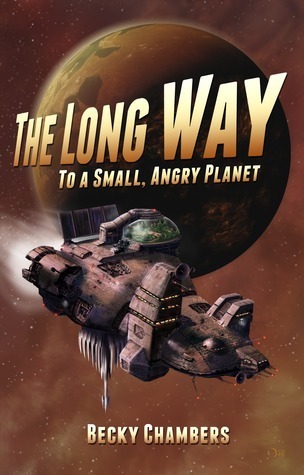
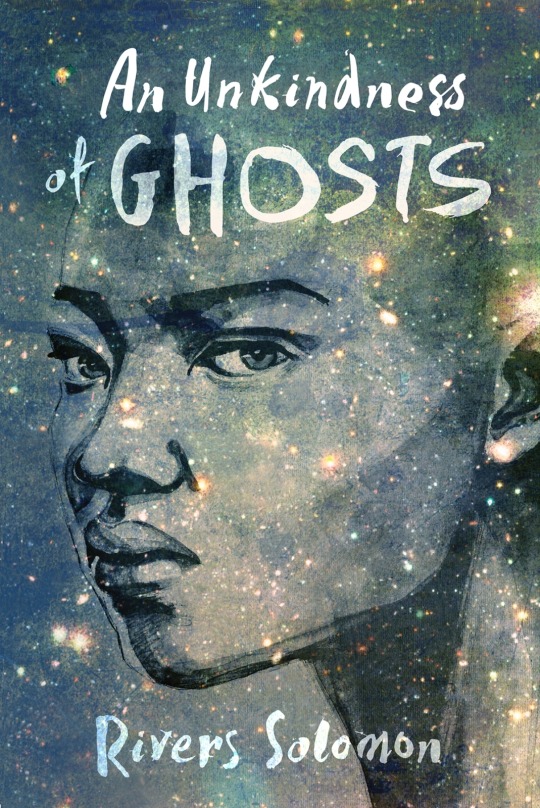
Bridge by Lauren Beukes
When she was little, Bridge and her mother Jo used to play a game - one where they traveled to other worlds, inhabiting the bodies of their other selves. Now Jo is dead, and as Bridge is cleaning out her apartment she finds a strange device: a dreamworm, the very thing that supposedly makes inter-dimensional travel possible. Suddenly faced with the possibility that multiverse travel is real, Bridge is struck by a different question: could her mother still be alive? Scifi spiced with a healthy dose of body horror and some absolutely wild twists, Bridge also features a bisexual lead (however this is a blink and you’ll miss it moment) and a nonbinary co-narrator.
The Long Way to a Small, Angry Planet (Wayfarers series) by Becky Chambers
Rosemary Harper just got a job on the motley crew of the Wayfarer, a spaceship that works with tunneling new wormholes through space. With a past she wants to leave behind, Rosemary is happy to travel the far reaches of the universe with the chaotic crew, but when they land the job of a life time, things suddenly get a lot more dangerous. A bit of a tumblr classic in its day, this is a cozy space opera with an episodic feel and vividly realized characters and cultures. While pretty light on romance and focusing found family, there is a main f/f relationship.
An Unkindness of Ghosts by Rivers Solomon
Life on the lower decks of the generation ship HSS Matilda is hard for Aster, an outcast even among outcasts, trying to survive in a system not dissimilar to the old antebellum South. The ship's leaders have imposed harsh restrictions on their darker skinned people, using them as an oppressed work force as they travel toward their supposed Promised Land. But as Aster finds a link between the death of the ship's sovereign and the suicide of her own mother, she realizes there may be a way off the ship.
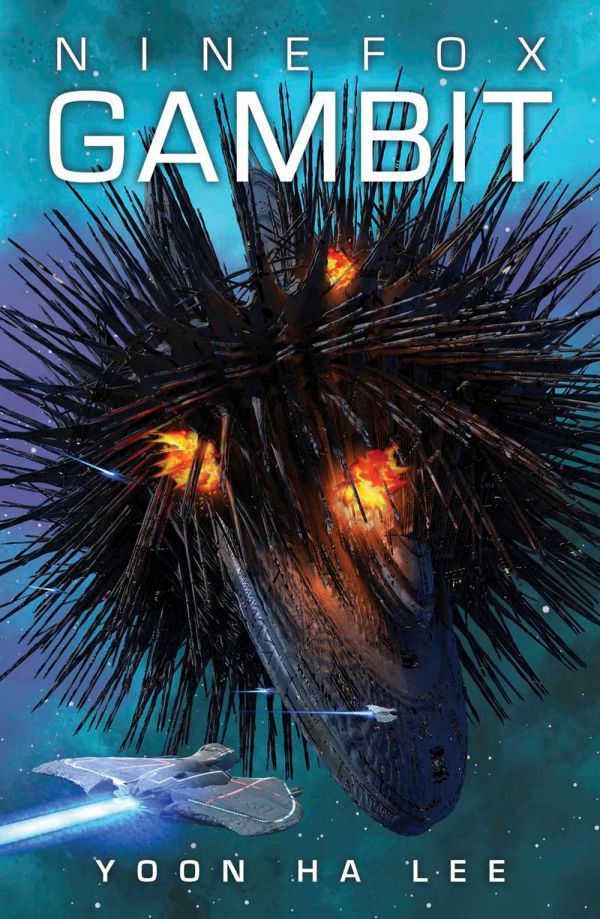
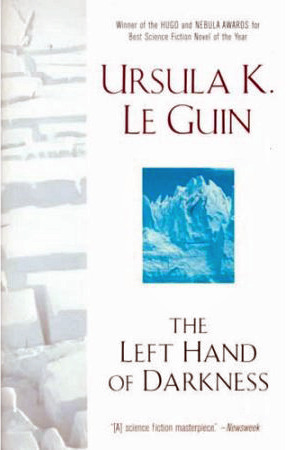
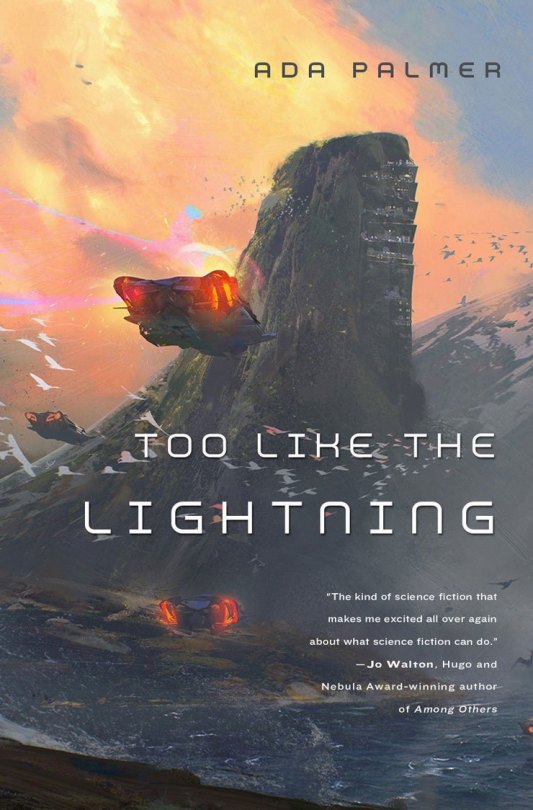
Ninefox Gambit (The Machineries of Empire trilogy) by Yoon Ha Lee*
Military space opera where belief and culture shape the laws of reality, causing all kinds of atrocities as empires do everything in their power to force as many people as possible to conform to their way of life to strengthen their technology and weapons. It’s also very queer, with gay, lesbian and trans major characters, albeit little to no romance.
The Left Hand of Darkness (Hainish Cycle) by Ursula K. Le Guin
1969 classic. Genly Ai is an emissary sent to the planet of Winter, meant to help facilitate Winter's inclusion in a growing intergalactic civilization. But he's unprepared for Winter's citizens, who spend much of their time genderless or switching between genders, making for a culture wildly different from that Genly is used to.
Too Like the Lightning (Terra Ignota series) by Ada Palmer*
Centuries in the future, humanity has deliberatly engineered society to be as utopian as possible, politically, socially, sexually, religiously. Written in an enlightenment style and featuring questions of human nature and whether it’s possible to change it, and what price we’re prepared to pay for peace, this book is simultaneously very heavy and very funny, and written in a very unique style. While still human, the society presented often feels starkly alien.
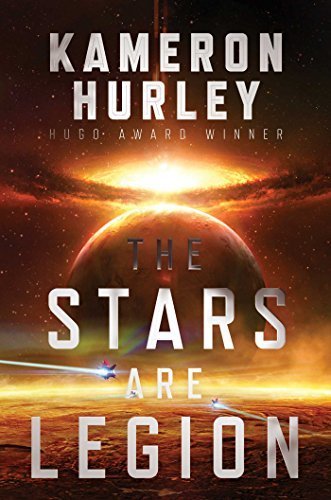
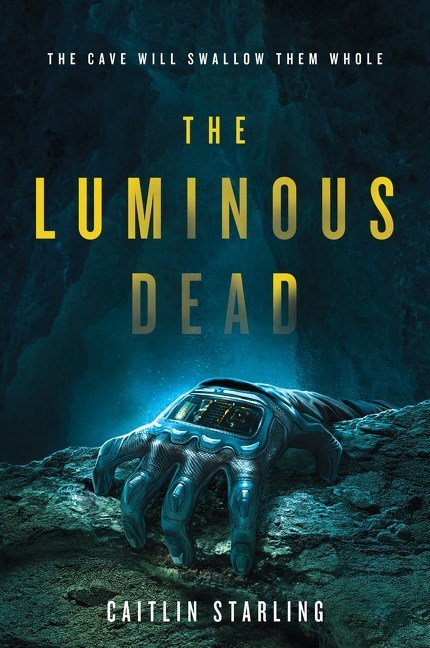
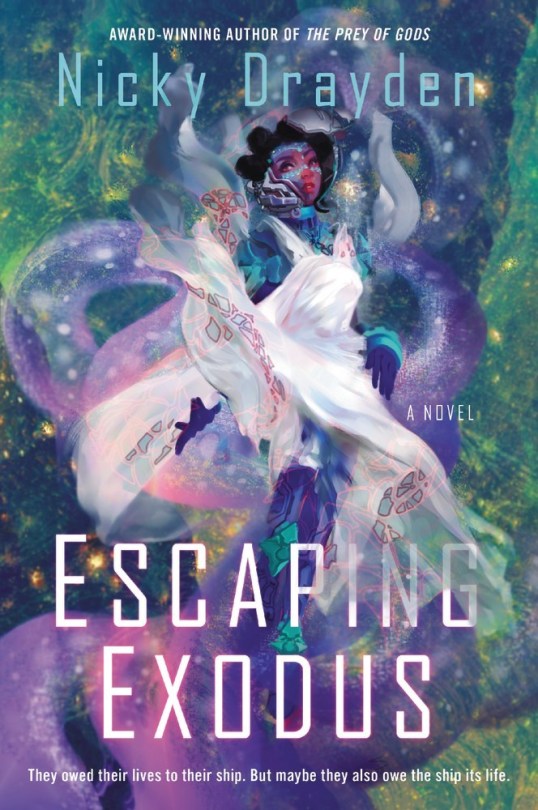
The Stars Are Legion by Kameron Hurley
This book fucked me up when I read it. It’s weird, it’s gross, there’s So Much Viscera, there are literally no men, it has living spaceships and biotech but in the most horrific way imaginable. Had I to categorize it I would call it grimdark military sf. It’s an experience but not necessarily a pleasant one.
The Luminous Dead by Caitlin Starling*
Possibly one of the most unsettling books I’ve ever read, and definitely the most claustrophobic. Gyre, a caver on an alien planet, ventures into the dark and dangerous underground, guided only by a woman who has no compunctions on using and manipulating Gyre as she sees fit to obtain her secretive goals down in the caves.
Escaping Exodus (Escaping Exodus series) by Nicky Drayden
While my feelings on Escaping Exodus were mixed, it cannot be denied that the dynamic between the two leads and the way they go from childhood best friends to enemies on different sides of a class and power struggle is very delicious. It also features some really cool worldbuilding of living, alien generation spaceships and the human culture that has developed inside them.
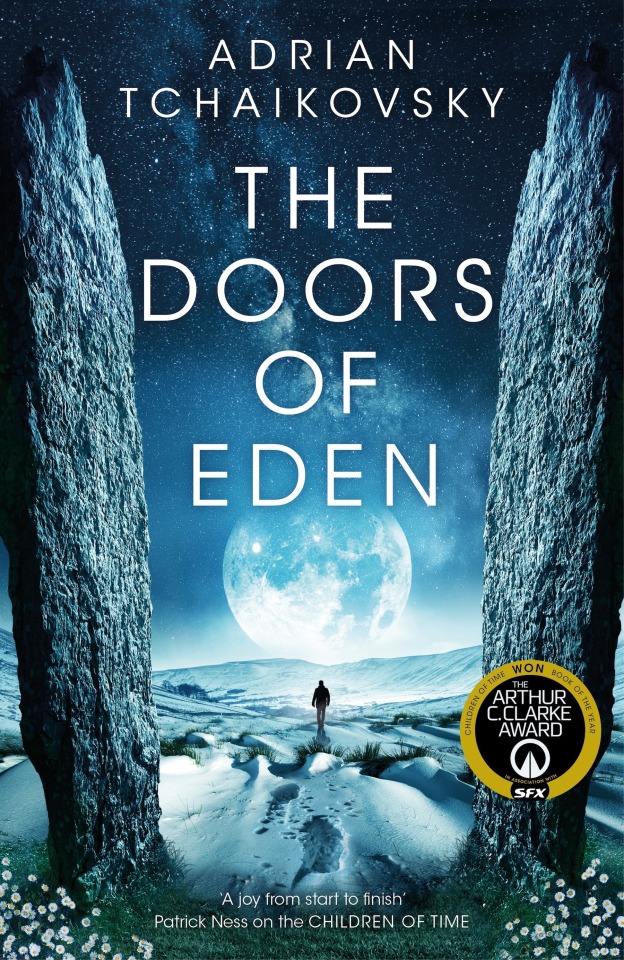
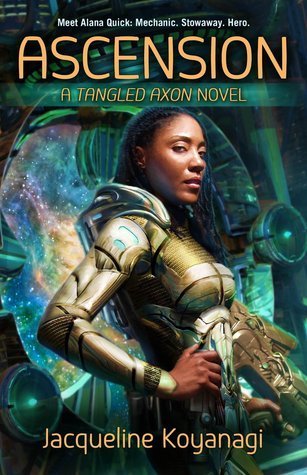
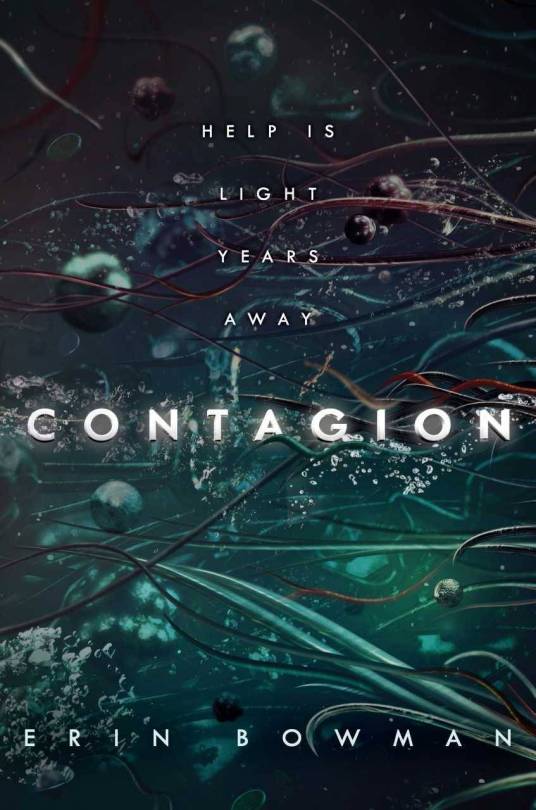
The Doors of Eden by Adrian Tchaikovsky*
The Doors of Eden is something of an experiment in speculative biology, featuring versions of Earth in which various different species were the one to rise to sentience, from dinosaurs to neanderthals. Now, something is threatening the existence of all timelines, dragging multiple different people and species into the struggle, among those a pair of cryptid hunting girlfriends and a transgender scientist.
Ascension by Jacqueline Koyanagi
Ascension follows Alana Quick, an expert Sky Surgeon who stows away on a spaceship in hopes of landing herself a job. But the ship and its crew are in deeper waters than she expected, facing threats emerging from a whole other universe, all of them searching for the same person: Alana’s spiritually enlightened sister. Undeniably a bit of an odd read, Ascension is also very creative and features polyamorous lesbian relationship.
Contagion (Contagion duology) by Erin Bowman*
Young adult. After receiving an SOS, a small crew is sent on a standard search-and-rescue mission. But what they find are not survivors awaiting help, but an abandoned site, full of dead bodies and crawling with something... monstrous. No romance, but features one sapphic co-lead and one who can easily be read as demisexual (however this doesn't show up until book two, which has more romance).
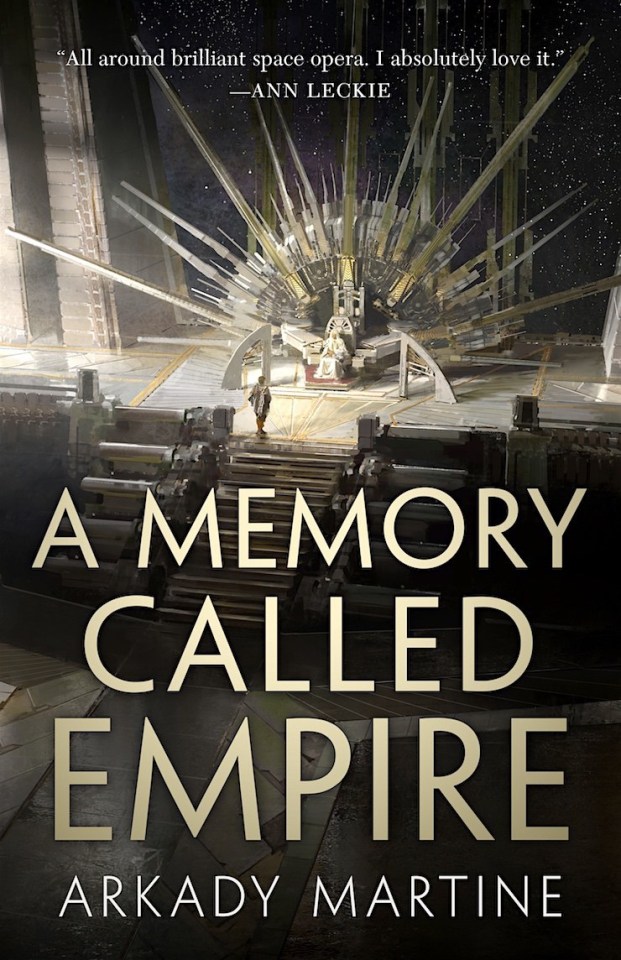
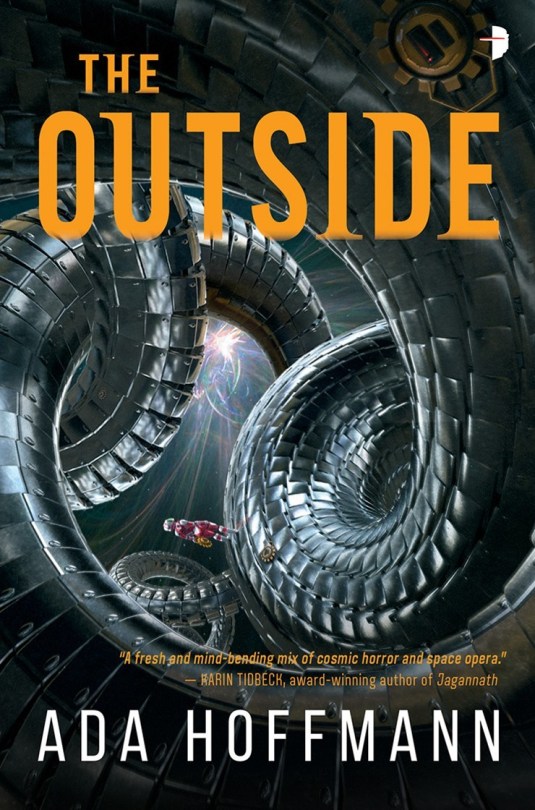
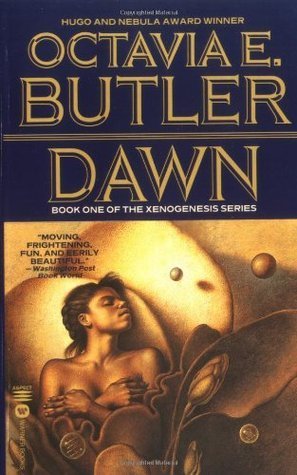
A Memory Called Empire (Texicalaan duology) by Arkady Martine
Mahit Dzmare is an ambassador sent to the center of the multi-system Teixcalaanli Empire, where she discovers that her predecessor has died. Trying to protect her home, an independent mining station, from being taken over by the empire, Mahit struggles to find out the truth of her predecessor's death while carrying the voice of his ghost in her head, guiding her as best he can. Light on the romance but does feature a sapphic relationship.
The Outside (The Outside trilogy) by Ada Hoffman*
AKA the book the put me in an existenial crisis. Souls are real, and they are used to feed AI gods in this lovecraftian inspired scifi where reality is warped and artifical gods stand against real, unfathomable ones. Autistic scientist Yasira is accused of heresy and, to save her eternal soul, is recruited by post-human cybernetic ‘angels’ to help hunt down her own former mentor, who is threatening to tear reality itself apart. Sapphic main character.
Dawn (Xenogenesis trilogy) by Octavia E. Butler*
After a devestating war leaves humanity on the brink of extinction, survivor Lilith finds herself waking up naked and alone in a strange room. She’s been rescued by the Oankali, who have arrived just in time to save the human race. But there’s a price to survival, and it might be humanity itself. Absolutely fucked up I love it I once had to drop the book mid read to stare at the ceiling and exclaim in horror at what was going on. Queer in the sense that the Oankali doesn't follow human ideas of gender and relationships, which is mirrored in their romantic relationships with humans. It is, however, pretty dark, with examinations of agency and consent, so enter with caution.
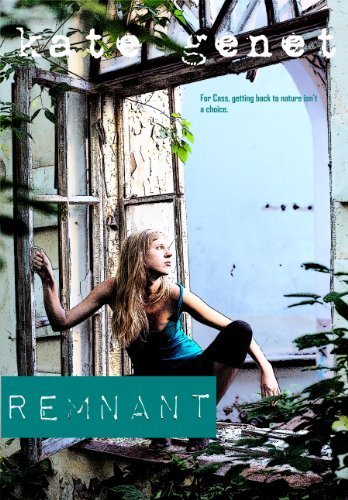
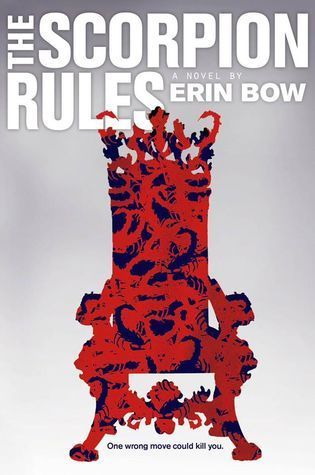
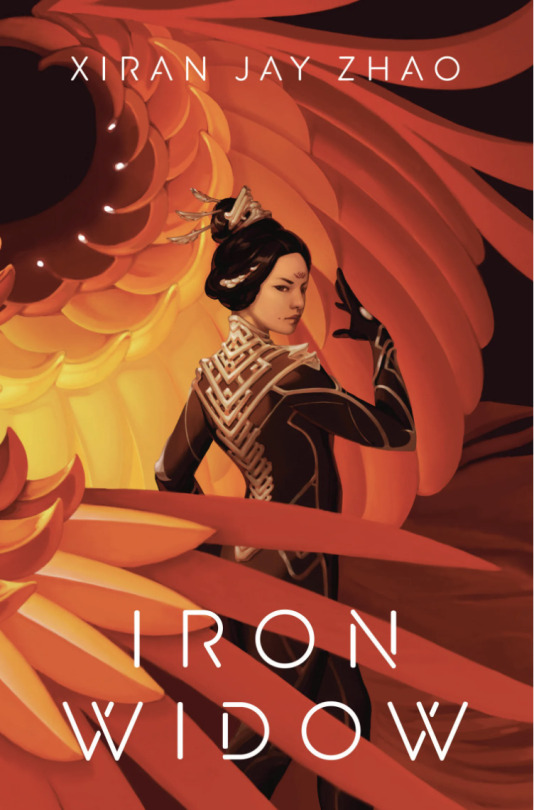
Remnant by Kate Genet
One day, Cass wakes up and finds everyone else is gone. Not dead, just gone, leaving her in a world which nature starts taking back with a dangerous, unnatural speed. But as she tries to survive this new normal, Cass realizes she may not be alone after all - but who else is out there, and are they a threat?
The Scorpion Rules (Prisoners of Peace duology) by Erin Bow*
Young Adult. Featuring a dystopian future in which an AI forcibly keeps world peace by holding the children of world leaders hostage. If anyone attempts to start a war, their child will be executed. Greta is one of these children, kept in a school with others like her. But things start to change one day when a new, less obedient hostage arrives. A unique, slowburn take on the YA dystopian craze, also featuring a bisexual love triangle.
Iron Widow (Iron Widow series) by Xiran Jay Zhao
Young adult. Zetian is a citizen of Huaxia, where mecha aliens are constantly trying to breach the Great Wall. To keep them at bay, couples of men and women pilot so called Chrysalises, giant transforming robots. But the pilots are not equal - the women almost always die, sucked dry by their co-pilots. When Zetian sets herself up to become a concubine-pilot, she does so with the plan to assassinate the male pilot who caused her sister's death. Features a polyamorous main relationship.
Bonus AKA I haven't read these yet but they seem really cool:
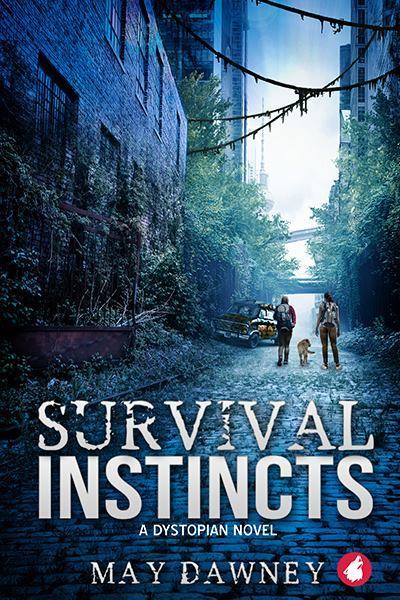
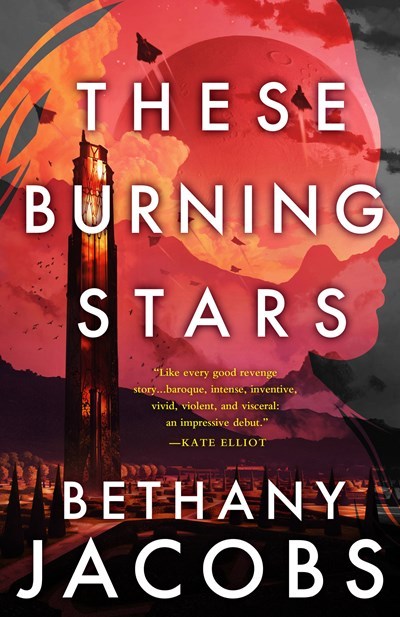
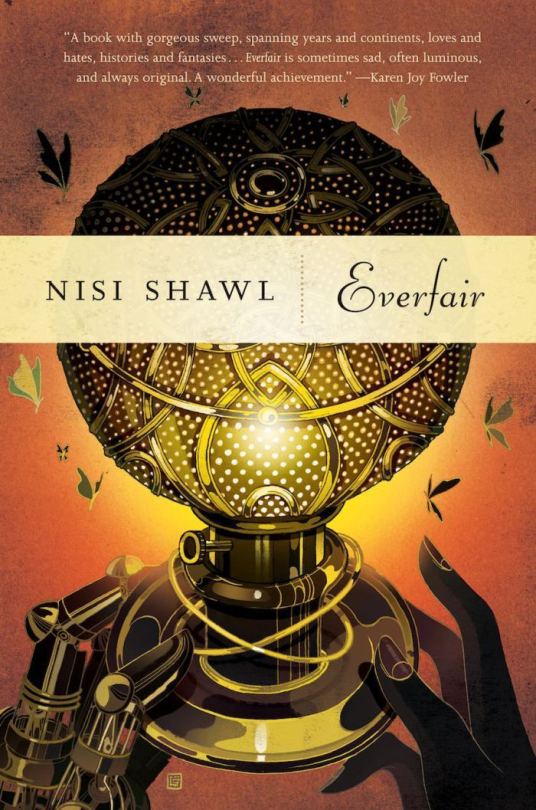
Survival Instincts by May Dawney
Lynn Tanner has been surviving the post-apocalypse alone with only her dog for a long time, trusting no one. But when she's forced to travel the dangerous remains of New York City alongside another woman, her priorities are challenged. Is staying alone really the best way to stay alive?
These Burning Stars by Bethany Jacobs
When con-artist Jun Ironway gets her hands on possible proof of the powerful Nightfoot family, controllers of interplanetary travel, committing genocide, she has in her hands a chance of taking them and their monopoly down. But the family and their allies won't go down easily, and sends two brutal clerics to stop her.
Everfair by Nisi Shawl
A neo-victorian alternate history, in which a part of Congo was kept safe from colonisation, becoming Everfair, a safe haven for both the people of Congo and former slaves returning from America. Here they must struggle to keep this home safe for them all.
#nella talks books#the light brigade#a psalm for the wild built#meet me in another life#the archive undying#the paradox hotel#fracture infinity#bridge#the long way to a small angry planet#an unkindness of ghosts#ninefox gambit#the left hand of darkness#terra ignota#the stars are legion#the luminous dead#escaping exodus#the doors of eden#the outside#xenogenesis#remnant#the scorpion rules#iron widow#survival instincts#these burning stars#everfair
487 notes
·
View notes
Text
my thoughts are not articulate at the moment but there's something beautiful and fascinating to me in the way nona explores the idea of selfhood and our relationship to our bodies that really resonated with me as a nonbinary person. nona's presentation and self conceptualisation being so horribly different both from harrow and from alecto (who is in turn the eve to john's adam). the tragedy of palamedes and camilla, and their perfect kind of love. everything about pyrrha dve. ianthe in babs. the lyctor princes. kiriona stuck in her depersonalised, dead body. the transhumanism of it all. john annihilating the world in nuclear fire and rebuilding the human form from the ashes. my thoughts here are incoherent but this theme just. resonated incredibly strongly with me and i wanted to ramble about it.
#nona the ninth#nona the ninth spoilers#ntn#ntn spoilers#the locked tomb#the locked tomb spoilers#nona#nona spoilers#pyrrha dve#alecto tlt#the body#gideon nav#ianthe tridentarius#ianthe naberius#kiriona gaia#palamedes sextus#camilla hect#paul#oaugh#this book#!!!#oh also#john gaius#think thats everyone.#yeah.#i really liked nona#the pacing was a touch rough at the end with the devils on the ninth plot point but like#otherwise#it was awesome#i personally greatly enjoyed it
517 notes
·
View notes
Text
So, hey, kind of realized something.
One is shy, socially anxious, has very lower self-esteem, and a tendency to apologize a lot. They lost one parent at a very young age, and their remaining parent is a psychologically manipulative asshole obsessed with reuniting with a lost loved one through a twisted form of transhumanism. Despite all of this, this person is a prodigy at piloting a highly advanced giant robot...which just so happens to be inhabited by the spirit of that lost loved one.
The other is a hotheaded tsundere who lost their mother under traumatizing circumstances and cannot be said to think too highly of their father. They're angry, insecure, have a tendency to degrade the other person with insults, desperately seek validation through their own accomplishments, and their family is intrinsically linked to the tragedy that stole the first person's own lost loved one away.
Through an unforeseen set of circumstances, these two people find their fates intertwined, though due to their conflicting personalities and traumas, they find themselves struggling to communicate, leading to them hurting each other and failing to see how much they could help each other if they would only let their defenses down.
Now, who am I talking about? Is it Suletta and Miorine?
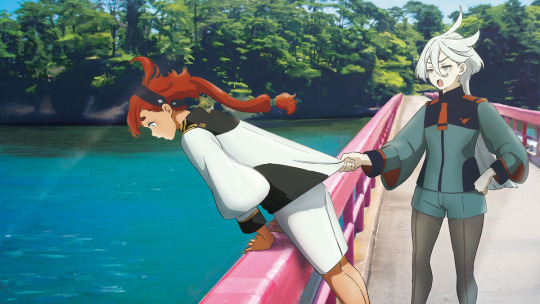
Or am I talking about Shinji and Asuka?
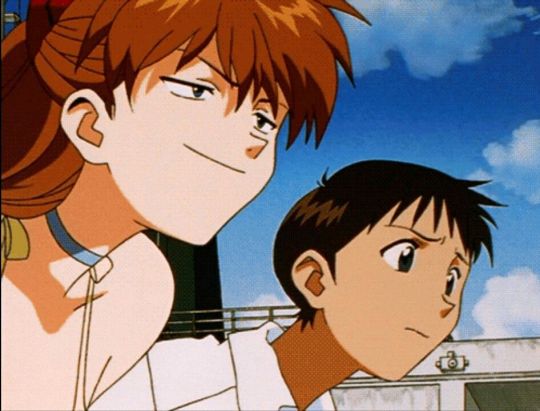
SuleMio is basically what AsuShin would be if it became a healthy relationship. And they were both girls.
#gundam the witch from mercury#neon genesis evangelion#wfm#gwitch#suletta mercury#miorine rembran#shinji ikari#asuka soryu langley#sulemion#asushin
18 notes
·
View notes
Text
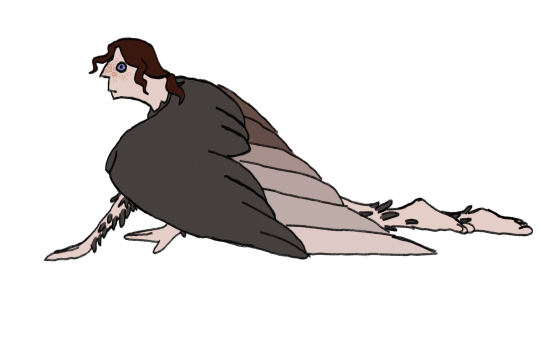
Possum @Gutterprophet is an obligate scavenger of the avian persuasion, superficially resembling a consumptive victorian maiden but more closely related to the American Black Vulture.
It was raised in captivity for use as a laboratory animal, but it escaped out the window one day and became a gutterpunk goat farmer & ecologist instead. Tragically it was struck down by various maladies both inherited and acquired, and thus retired to pursue an illustrious career in dying.
It blogs about its life, birds, illness, agriculture, poetry, Aradia Megido, and death. The organizational tagging system of its blog is available below.
(work in progress, because adding links is tedious)
#possum posts - my original posts
#possumcore - about me
🐐🌻🍄 🌻🐐
#ag tag - agriculture
#birdblogging - birds
#dogblogging - dogs
🐐🌻🍄 🌻🐐
#cripple tag - illness/disability
#cyborg tag - the intersection of disability and transhumanism, thoughts and feelings about disability and medical interventions to mitigate disability making me more than or less than human
#pain tag - chronic pain
#endblogging - terminal illness
#neurocognitive fuckshit tag - neurological + cognitive + psychiatric manifestations of illness
🐐🌻🍄 🌻🐐
#I met death and death wants me to live - my statistically improbable amount of near-death experiences and relationship to death as a concept while chronically dying and unable to stay dead
#death and all things and the vulture girl - my religious beliefs about death and self-identification as a psychopomp
🐐🌻🍄 🌻🐐
#walk to your death like a lover - my positive feelings about death and self-identification as a bride of death
#prophetics - prophets and prophecies
#the story is only a tragedy when gd loves you back - on being gd's best beloved
#jewish tag - Judaism
#cassandra - Cassandra
🐐🌻🍄 🌻🐐
#raised in captivity - my childhood & adolescence
#a little child with dirty nails and dirty hair and dirty things scrawled upon my mind - my childhood
#we were gods! we were kids - my adolescence
#the family ghost - family
#pasiphae - mother
#the bull of minos - father
#her brother the minotaur - Ariadne and the minotaur were siblings. She watched him grow up down there, alone in the dark, blood-smeared and bellowing. She stood outside the labyrinth holding her ball of thread and listened to Theseus kill him.
#hometown - the place I grew up
#an angel is a dead thing - the animal in captivity
#the herd of deer in the basement - this is a work of fiction, because you do not believe me
#proliferation of selves - dissociative identity disorder
#all that was left was a knife; a few small bones; and me with my big black wings - what it takes to have survived this (horror and grief)
#I grow wings and rage - what it takes to have survived this (celebration)
#runaway diaries - chronicle of my time as a homeless runaway
🐐🌻🍄 🌻🐐
#garden of earthly delights - And if your spirit carries within it the thorn that is heavier than lead-- if it's all you can do to keep on trudging-- there is still somewhere deep within you a beast shouting that the earth is exactly what it wanted. Each pond with its blazing lilies is a prayer heard and answered lavishly, every morning, whether or not you have ever dared to be happy, whether or not you have ever dared to pray.
#warmth - the feeling of syrupy golden sunlight and comfort and love and fullness and sleep
#I love you. I want us both to eat well. - my best friend commented once that almost all of my ideals boil down to wanting to have a table big enough for everyone to sit at and enough food to share with everyone who does. We spend too much of our lives hungry. I love you. I want to peel clementines for you. I want to make you soup.
#who will come into my kitchen and be hungry for me? - recipes, photos of food, musings on food and cooking
🐐🌻🍄 🌻🐐
#inhuman tag - on not being a human person
#birdisms - on being a vulture
#changeling tag - on being a changeling
#deer is only prey when things have gone wrong - on being a prey animal
#I am fearfully and wonderfully made - on liking whatever it is that I am
🐐🌻🍄 🌻🐐
#aradia tag
#homestuck
#teen titans
#arcane
#the sparrow
#the locked tomb
#the magnus archives
#repo! the genetic opera
#hadestown
#the mountain goats
🐐🌻🍄 🌻🐐
#something happened to lisa - audio drama I've been not writing for six years, about two teenagers searching for their missing friend in small town Appalachia and getting tangled up with what is either a hidden society of fair folk lurking under the Virginia foothills or a sex trafficking operation with a schtick
#sin eater - novella I've been not writing for twelve years about a young adult vampire who reconnects with her childhood best friend and first crush, now working as a vampire hunter, and follows her through a series of sundown towns while trying to keep her true nature secret as long as possible. Themes of scrupulosity, shame, scapegoating and purity culture in evangelical america
#ferris wheel story - short story I've been not writing for nine years about the last two humans left alive decades after a global apocalypse and the slow awful decay of their isolated and hopeless relationship, until one finally kills the other
#waffle house story - novel I've been not writing for eight years about a gang of rowdy teen prophets road tripping across America to rescue and/or murder a god raised in captivity
🐐🌻🍄 🌻🐐
#good art - art I like
#the anatomy of gd - STEM fields
#letters to my younger self - things I would say to my younger self if I met her on the street
6 notes
·
View notes
Text
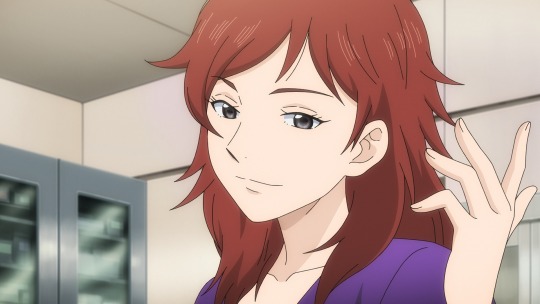
(Kaoru from The Gene of AI)
I started watching The Gene of AI on a lark because the premise reminded me somewhat of Detroit: Beyond Human. It's sci-fi, mentions advanced AI, and there's a philosophical transhumanism element, so that falls into my interests somewhere, but totally didn't expect it to approach gender at all. Consider me pleasantly surprised and my interest peaked.
During Episode 2, Risa, Hikaru's assistant, returns to the office to find him giving his friend Kaoru an examination. Due to her obvious interest in him and the fact he's touching Kaoru's chest, this flusters and annoys Risa prompting her to ask him about their relationship later in the episode. Hikaru mentions they are former coworkers, and showing her a picture, Risa is surprised to see Kaoru presenting male. When asked about their gender, Hikaru says if questioned Kaoru would probably say they are neither and muses they are trying to move past these concepts. Also, I am referring to Kaoru using They/Them pronouns because Hikaru does the same and I don't believe it's stated for certain anywhere, at least so far. If this changes, I will update this.
In this world, life has evolved to where humans exist alongside human/machine hybrids with advanced AI. The core story follows Hikaru, a doctor treating the latter, and his exploits. Kaoru is a side character introduced early as his friend still working at the mysterious lab apparently overseeing or otherwise involved with the larger AI happenings of the world. Even though this type of setting is perfect for explorations of gender, you rarely see it. This has always frustrated me about these types of stories. If there was any setting perfect for exploring something like this it's futuristic, sci-fi, and/or cyberpunk worlds. It's infuriating to me there are fantastical universes with interplanetary travel, robots that are basically artificial humans, and even space magic, but gender identity and transitioning between it is never even approached. Though, I suppose that's a rant for another day.
Anyway, I’m not familiar with the source material, so I can’t say one way or the other if it will come up again or be handled respectfully and meaningfully, but I’m hopeful. If I find out it doesn't, I will update this post.
During their initial interaction with Risa, Kaoru mentions body modifications and how their appearance wasn’t always the same. Knowing about their situation, rewatching this interaction holds new meaning. Clearly Kaoru is happier presenting female, describing it as fun, and likes the attention their attractiveness gets from other men. They are happier. While I don’t know the intention of the creators, this reads as joy found after transitioning into their true self. It makes me smile to see things like this in the media I consume.
Of course, I’m worried this will turn into a tragedy or something else equally horrible, but time will tell (or I can go read the manga, I guess). Here’s hoping this isn’t the case. Given how these topics are usually handled, perhaps it’s best if it’s never mentioned again, but I feel so horrible saying that. It's just I worry about again enjoying a piece of media showing a tiny breadcrumb of anything queer only to have it ruined later. Having a clearly Queer series end with the main characters not only surviving but marrying and finding happiness last season may have ruined me. Or perhaps it wasn’t my being ruined, but it proved to me I shouldn’t settle for less. There are queer stories out there. It would be nice if more of them found their way into popular media though without the negative baggage typically forced on them.
Will continue watching this to see where it goes. Also, the queer series I mentioned above was Mobile Suit Gundam: The Witch from Mercury. Go watch it, just be warned, if you have abandonment issues like me the end of Episode 17 may traumatize you, but the overall end is worth it.
3 notes
·
View notes
Note
Hey can u give me inspiration for a book that is sad but hopeful all the same
I cannot give you a plot, that’s gotta be on you, but I can explain how I do things
If You are wanting a story that is hopeful but filled with sorrow, think on tragedies. I find they’re a good inspiration for crafting such stories. They usually follow a hero, one who usually dies after they did what they needed. To die after achieving their greatest glory is the easy way to solidify their character. In a bitter way they fulfilled the purpose.
What kind of emotions are you trying to portray? And what do you usually associate with those emotions? If I wanted to write a story about longing, I’d write about the sea. If I wanted to write about anguish, a story of loss or the process of losing someone or something is how I’d do it. I tend to associate emotions with certain things. i.e. longing relates to water, rage to blood.
Ultimately, I’m probably not the best to ask, as I cannot decently explain my thought process and how I think of stuff. When writing something happy, there’s always a thought of how can I make this hurt?
I am not a person who is a fan of stories that are entirely happy. I’ll admit that I can be a bitter person, and that can be reflected in what i write, because I find happy stories idealistic and foolish, but that is not to say they are unneeded.
To write a story where tragedy is prevalent and you find a way to create moments of joy speaks more to me, finding happiness despite the odds being stacked against, despite the desire to fall into a depressing pattern, those speak more volume to me. That can be turned into hope. Hope for a better future of your characters, or hope to repair a relationship, hope to change oneself, you get the idea.
All in all, I suggest finding inspiration in what you find important, what you think would make an impact within your world. Easy enough genres could be dystopian, apocalyptic, sci-fi (if you are wanting to discuss things like transhumanism I find this is a cool one) things that are already bleak in nature that you can add hope onto. The loneliness of space and the hope of finding something new, the struggles of surviving in a world not in your favor and finding love and happiness despite that. There’s a lot you can write about.
#ask#thxgirlusitbxsidx#I wrote this on my work break so it’s a bit scatteredbrained#interactive fiction
9 notes
·
View notes
Text
so i think the extinction is still going to be the mechanism by which this story is ended, in major part because of the following factors:
the extinction is all about a solitary witness to the future without humanity — leah, hillier, dekker’s various extinction-touched subjects, even tessa winters on some level.
this means the extinction is not actually a product of the end. it simply isn’t. it’s a product of the eye, the lonely, and, i think, the spiral, though how the spiral fits in is not entirely clear — i just know that the doors are there, and we know how bound up doors are in the distortion, and also there’s a lot of math/tech/coding in many spiral/extinction statements, like the fucked up timescale in cracked foundations, sergey ushanka’s transhumanism thru code in binary, the numbers station in decrypted, etc.
so i think, honestly, the exinction will only ever really need one fully realized avatar, one true victim, if it takes the world. the future without us isn’t a future where humanity is wiped out, no. the future without us is a future where only one of us is left.
i also think that martin is uniquely suited to this role — he’s touched by the eye, and has interesting relationship to the tape recorders he interacts with in season 4, and peter did his damnedest to make him lonely. he’s also much more willing to interact with helen, and still has the ability to walk through her doors, where jon, as he is now, ‘the closest thing this world has to an important person,’ (thanks simon) cannot.
speaking of simon, i think we need to look at simon’s conversation with martin again, and in particular, the way the avatars and monsters are all basically just working on what feels right, because fear isn’t clean and categorizable in the way smirke tried to make it.
consider the fact that jonny has told us multiple times that this is going to be a tragedy.
consider the fact that jon is, i would argue, the avatar of, not merely the eye, but this whole changed world under its dominion. marked by all the fears — save the extinction, which perhaps is not yet fully born, as peter suspected — the mechanism by which they entered and changed the world.
it feels right for him to die with it, when the time comes.
what feels right, then, to make this tragedy complete? for martin to survive. for martin to topple the fears and find himself alone, avatar-victim-martyr of the extinction, its father in the same way jon fathered the world they’re walking through.
i also feel that the tapes are extinction and always have been, but that’s gonna have to be another post.
24 notes
·
View notes
Text
[Review] Iconoclasts (PS4)

Konjak’s magnum opus (so far), Iconoclasts’ colourful art belies an emotionally charged story filled with tragedy and intensity. It’s also a great Metroidvania with some novel mechanics!
Before playing this, Sandberg’s biggest commercial undertaking (and still a completely solo development effort), I played Ivory Springs, essentially a prototype for what this would become. It has a chibi character style and the first boss has a different design, but it plays out almost exactly like the opening ten minutes of the final product, then just stops. I also tried Solar Plexus, an abandoned demo on his website. Its buggy state prevented me from getting much further than the first room, but I noticed that the ledge grab and stomp move from it made it into Iconoclasts.
Anyway, Iconoclasts is polished to a mirror sheen and the world and characters are deeply developed. Each sidekick and the main antagonists all feel like the protagonist of their own story, with their own desires and flaws. The story is all about conflict between belief systems and personalities, an escalating series of twists and revelations, and to quote Red Dwarf, people “using religion as an excuse to be extremely crappy to each other”.
Characters feeling like the centre of the story is part of the story, as the silent playable character Robin is pulled along by circumstances and her friends trying to achieve their goals, which is occasionally called out by other characters. Their arguments and bouts of self-pity make for some lengthy but engaging cutscenes, particularly when they’re coupled with catastrophic plot events.
I can’t emphasise enough how surprised I was by how dramatic this game is, and it works so well; but if you don’t want to engage with it too much, cutscenes can also be skipped! Seriously though, watch them. Just don’t expect things to go rosily; stuff goes wrong constantly, and lots of people pay the price for their own or others’ mistakes, even though everyone thinks they’re doing the right thing. It’s a destructive spiral of theocracy, resource scarcity, transhumanism, emotional dependence, cultural taboos, self-righteousness... It’s a rare Metroidvania that deals with these issues so openly.
Anyway yeah, it’s a Metroidvania! Robin has a gun and a wrench, which both get enhancements as you progress to do different things, making for interesting challenges in combat and puzzles. The map crisscrosses and is fun to traverse, with hidden baubles that tie in to the tweak system. These are bonuses, usually passive, that you can swap out as you choose. The three you pick are deactivated as you take damage, and are recharged by picking up Ivory (the MacGuffin that this world is built around).
The game is more or less a culmination of what Mina of the Pirates (the original unfinished Konjak game) was trying to do, but much more mature in terms of storytelling and game design. I noticed a few direct throughlines too, not least of which is Mina herself, repurposed here as the closest thing to a deuteragonist this game has. She even has a handful of solo and co-op gameplay segments, swapping out her knife from her own game and Ivory Springs for a shotgun.
The boss fights are big and bold, as expected from Sandberg. This time, they’re all well integrated into the story too. There’s even a couple of secret hidden battles you’ll only find through very thorough exploration (or using a guide). And the final boss is amazing if only for its mind-blowing context within the game, but it also contains a sequence which forces Robin to confront the dark side of her relationships.
Iconoclasts really makes an impression. If you engage with it, you might find yourself thinking about it a lot when you’re not playing it, which for me is a very good sign. I’m very impressed with what Sandberg worked up to here, and I feel I appreciated it more by examining his past works. The story is full of downer moments but no less engaging for it, and has just enough glimmers of hope and catharsis that you don’t come out of it feeling completely drained. Loved it.
19 notes
·
View notes
Text
Getting TWATD at the Wake, ii: The Eulogies
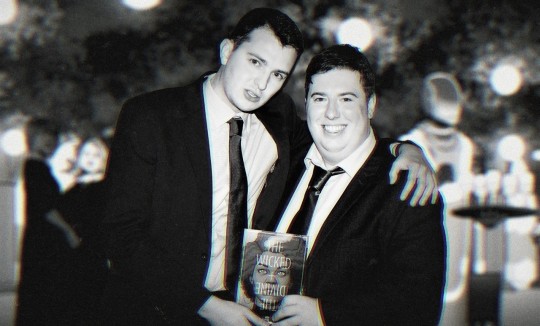
Every month, two writers returned to this blog. They did an essay each. For five years. And now it’s all over.
The Wicked + The Divine #45 came out a month ago, and we’re still at the metaphorical wake. In this part, we pick out two characters we haven’t written much about, consider the paths their lives ended up taking, and write their obituaries. It could get emotional.
Spoilers for... well, for the entirety of WicDiv, I guess, below the cut.

Tim: Endings are bittersweet things at the best of times, and for a series as preoccupied with death and heartbreak as The Wicked + The Divine, we were never going to reach a conclusion without shedding a few tears. Still, there are many ways in which #45 is a happy ending for several of the characters – and that’s truer for Aruna, the god formerly known as Tara, than possibly anyone else.
Looking across the span of the series as a whole, she is a character who has suffered abuse, indignity and manipulation. But here at the end, Aruna is free from many of the troubles that plagued her life both before and during her time as a god. I don’t know if the Aruna we see in 2055 is living her best life, but it seems infinitely better than we could have expected after #13, the issue which gave us a painful glimpse into a character who had remained a mystery up to that point.
Pre-Godhood, Aruna had been made to feel uncomfortable in her own body by sexism and misogyny. That feeling was amplified by her divine transformation and the increased celebrity that came with it, culminating in her begging Ananke for the mercy of death. But Ananke’s manipulation accidentally set up Aruna to transcend the cruelties inflicted upon her. As a miraculously preserved head, she was free from the burden of her body, and free to reinvent herself.
With the help of Jon, Aruna she was able to reject a new form when she wasn’t ready for one – and, once she was, to create one that existed beyond the constraints of traditional biology. Her story touches on themes of transhumanism, not an area that WicDiv has traditionally dabbled in, but one that has some interesting connections with the themes of people seeking immortality. As you might expect given the ideas of gender and bodily autonomy at play, it’s also easy to read through a queer lens.
I’m glad that, while it’s clear Jon and Aruna have developed a close partnership over the years, Gillen and McKelvie chose to leave the exact nature of their relationship open to interpretation.
Aruna’s previous discomfort with the spotlight, and Ananke’s subsequent exploitation of that fact, also ended up benefitting her in other ways. Her distance from the rest of the Pantheon meant she avoided jail time after the events of #44 (it probably helped that it’s hard to handcuff someone when they’re just a head).
You could also maybe draw a line between the sudden outpouring of appreciation following Tara’s death and the way she was able to successfully campaign for the Pantheon’s early release, performing benefit concerts and raising awareness. This goes some way to colouring the previously devastating ending of #13 in a new light, as the insincere chorus of Twitter observers become a platform Aruna is able to use for good.
There’s an important distinction, though – this time around, she was able to approach a musical career and fame on her own terms, as Aruna rather than Tara. Also, the fact that her ‘death’ wasn’t a permanent one doesn’t take away from the tragedy of it, or how the comic made us complicit in the culture that led to it.
Aruna’s story following her ‘death’ could be called WicDiv’s ultimate triumph. The old truism about suicide being a permanent solution to a temporary problem feels especially apt here. Ananke took someone who was miserable and vulnerable, and proceeded to place them in a situation that they couldn’t cope with. Ananke became Aruna’s sole source of ‘support’, isolating her from the other gods, amplifying her insecurities until Aruna felt the only solution was to take her own life.
Strip away some of the details, and the story starts to take on some truly dark parallels, but unlike so many real-life stories, there is a second act to Aruna’s tale.
Once the true nature of Ananke’s plans are revealed, Aruna is eventually able to escape her role in them, retake control of her life, and eventually thrive on her own terms. WicDiv may be a story that largely approaches death as a firm reality, but by giving Aruna a reprieve from her seeming demise, it allows us a glimpse of a real happy ending, in amongst the more complex feelings the final issue evokes.
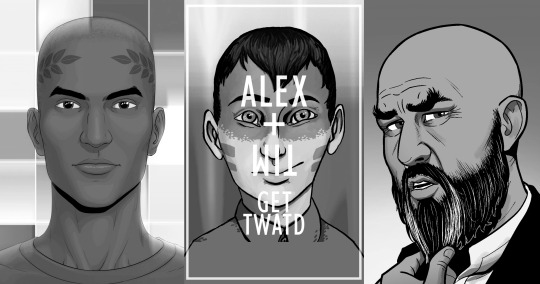
Alex: Aruna’s story is a happy one because she escapes the cycles that life locked her into. But the god I want to talk about, I’m not sure they ever did. Which might not be a terrible thing – it was always a little different, with Dionysus.
We don’t get much time with Umar before he goes all Olympian, but the moments we do get suggest there’s less of a gap between his two identities than there is for most of the other gods. He’s the guy who drives his friends down to London so they can get wasted on the way, who asks sensitive questions of strangers.
When he becomes Dionysus, the difference is mainly a question of scale. The group of people he’s trying to do right by gets bigger and bigger, and that makes this behaviour unsustainable. That first time we meet him, in issue #8, we get pretty much the whole Dionysus story. Dude takes on everyone else’s troubles, exerts himself to make them feel better, and makes it look breezy – only occasionally cracking and showing the weight of it all.
I’m not sure that ever really changes for Umar. He keeps using his powers to make people happy for a night, even as it starts to take a toll. He waits in the darkness, lets The Morrigan attack him, just to be there for Baphomet. He has faith in the power of the crowd, even as they crush him. He just keeps giving and giving, and it lands him in a coma.
This is Dionysus’ hamartia – the fatal flaw built into every one of WicDiv’s gods, the thing that ensures their downfall. As these things go, it’s not a bad flaw to have.
It marks him apart from the other gods. Gillen has talked about the Pantheon all being aspects of himself, his own flaws built out into characters, people he’s trying not to be anymore. But Dionysus’ flaw actually makes him someone to aspire to.
A spare Gillen quote from my Polygon interview that didn’t make it into the final article: “Umar is someone I'd love to be now… But Umar's a fictional character. Therefore, it's easier for him to be Umar than for Kieron to not be a shithead.” Even in the comic, we see how Dio’s behaviour is unsustainable – but to try and live that way, all of the time, in real life? It’s impossible.
I say this with authority, because in many ways I spent my twenties trying to be a Dionsysus. I’m an Inanna by nature – a pleasure seeker who tries to be kind but can sometimes forget that having the best possible time can have consequences on the people around them. (And, sidenote, it’s a fascinating twist on the archetypes that the god with these traits isn’t the one who, y’know, gave us the word bacchanalian.)
But, to be uncharacteristically nice about myself for a second, my idea of having a good time does tend to include bringing as many people along with me as possible. The version of me I like is the one who always opens up the circle on the dancefloor to sweep up strangers and stragglers. Or spot someone who seems left out and work to change that. Or pour hours into a project that’ll be seen by just a handful of friends, or just one.
I kind of buried that person this year.
This wasn’t an active choice, or something I was even conscious of doing at the time, but looking back I can see the reasons behind it. Firstly, because it’s not always clear whether people actually want these things done for them, or if it’s an unwelcome overreach, and that thought makes me to want up curl into myself and just die. And second, because I’m not good at knowing how to apportion effort, meaning it can involve frankly life-damaging amounts of preparation for very little payoff.
It’s not a sustainable way to live. Dio might be the best possible version of the WicDiv god, but he’s still someone sacrificing his self to become an idea. It kills him, eventually, and #37 shows how he’s remembered for it by the public, the people he gave everything he had to: ‘that guy on drugs’.
But eventually he is repaid by one of the recipients of his kindness, as a little bit of that selflessness rubs off on Baphomet. And Umar joins the rest of the Pantheon as they step back from their defining flaw, allow themselves to become more than an archetype. “I thought it was my job to save everyone,” Dionysus says, and I cry my little eyes out.
Maybe that was the moment I started to realise I’d been stepping back from that version of myself. Or maybe it was talking with Tim (my other, non-fictional model for the sort of person I want to be) about issue #45, when he explained how he read the older Umar: someone in whom all that kindness turned a little bitter. Aged like vinegar, not wine.
My reading is more hopeful than that, I think. The final issue trades in hints and suggestions of lives, but with Umar more than most. And personally, I fill in that blank with a different story: someone who has tempered his need to always put others first, and become more judicious about when and how and to whom he gives himself. And that? That is someone I’d really like to be.
33 notes
·
View notes
Text

i imagine the kid who made this growing up in the fringes of the okefenokee dreaming of sharing tea with the queen
#the a brief reprieve from the trauma of dislocation#traavelers#toilets#so drunk i had to grab onto the weeds to keep from falling off the edge of the world#once transplanted still sustained#the tragedy of transhuman relationships#pink blots#bathrooms#the rapture#the rapid onset of confusion due to withdrawal#i imagine the kid who made this growing up in the fringes of the okefenokee dreaming of sharing tea with the queen#pink spots#rogues#places where thieves meet#pixies#pink elephant#flying pig#dark creatures in pretty pink capes#crak#confusion#north fungi county#georgia
78 notes
·
View notes
Note
Do you know of any video games with an explicitly lesbian character? Bonus points for each of the following that apply: She's a happy relationship, she's NOT a villain, she does not die, she is important/a party member rather than a one-note NPC, or she is the protagonist.
I might be able to come up with a few. Though much of my library consists of games with female protagonists, I don’t specifically aim for lesbian content, so this list is not at all representative – it’s just stuff I happen to have played lately. I hope you like visual novels!
(Note that this list includes both lesbian and bisexual protagonists, though in the latter case I’ve tried to pick ones where it’s possible to end the game in a non-tragic relationship with a woman.)
Black Closet - A dice-rolling strategy sim where you play as the leader of an autocratic student council. There are ways for it to end happily, but there are also many ways for it to end poorly, and your political enemies may use the protagonist’s orientation against her, should they discover it. Arguably breaks your “no villains” rule, as the protagonist has definite villain vibes in spite of being the player character.
Borderlands: The Pre-Sequel - A run-and-gun shooter with heavy loot grinding elements. One of the four playable characters, Athena, is a lesbian – her orientation is textually explicit, but not particularly relevant to the story. (She does turn up engaged to marry a woman in another game in the series, albeit as an NPC; as far as I’m aware, she’s consistently single during her tenure as a playable character.)
Even the Ocean - A semi-nonviolent momentum based puzzle platformer with VN story segments. The protagonist can start a relationship with another woman during the course of the game. Fair warning: the ending is high on the tragedy scale, though not for any reason related to their relationship. (In the interest of not spoiler-bombing this blog’s entire readership, message me if you want details.)
Ghosts of Miami - An extremely 1980s murder mystery VN in the mode of Phoenix Wright, plus light dating sim elements. The protagonist has both male and female romance options, which end about as well as romance in a detective story ever does (which is to say that most of the people you can date have Issues™, but the same-gender options aren’t particularly singled out for it).
Heartbeat - A traditional turn-based RPG with light monster training elements. Great writing and peppy Super Nintendo style graphics. This one’s something of an edge case; while the cast contains numerous women in relationships with other women, and playable party members often flirt with or display crushes on other ladies, the protagonist herself is merely implied to be into ladies.
Heaven Will Be Mine - A self-described visual novel about “irresponsible lesbians and giant robots” from the creators of We Know the Devil (see below). Whether you end up in a happy romance depends on how you define “happy” and “romance”; in keeping with the game’s explicit conflation of transgender themes with transhuman themes, some of the endings are pretty esoteric!
Her Tears Were My Light - A short and sweet visual novel about the anthropomorphic personification of Space courting the anthropormorphic personification of Time. Some of the endings are happy and some are not, but owing to the protagonist’s nature they’re arguably all canon. Be sure to check out the rest of the creator’s library, too – it’s largely in the same vein, if not quite so high concept as this one.
Princess Remedy in a World of Hurt - A retro RPG where you magically enter sick people’s bodies to fight their illnesses bullet-hell style. The protagonist’s highschool ex-girlfriend is a prominent NPC (which here means that she has more than two lines of dialogue), and you can rekindle your relationship at the end, though the latter is partly a joke – the game will let you marry literally any NPC in the game.
Queen of Thieves - A light dating sim/dungeon crawler hybrid about a trio of sisters who form an adventuring party to search for their missing mother. I’ll be honest, the writing isn’t great, and the mechanics are only so-so, but I found it to be an engaging time-waster. Plus, there are just enough same-gender romance options to pair every single party member up with a lady, which is novel.
Super Lesbian Animal RPG (forthcoming) - A traditional turn-based RPG with a trans lesbian protagonist. You start out already in a happy relationship, and in fact can make out with your girlfriend in battle for stat buffs. This is only a demo for a forthcoming game, so I can’t rule out the possibility that their relationship will end tragically in the full version, but given the game’s tone I rather doubt that will be the case.
Ticket to Earth - An oddball cross between a minifigs-on-a-grid tactical RPG and a match-three puzzler set during a planetary revolution. The main character starts out in a relationship with another woman. In the interest of full disclosure, I haven’t gotten around to finishing this one yet, so I don’t know if their relationship ends badly or not – maybe someone who has can clue us in!
We Know the Devil - From the same creator as Heaven Will Be Mine (see above), this one’s a visual novel about a trio of girls at a Christian summer camp who’ve been forced to participate in a bizarre ritual that culminates with fighting the Devil. Definitely not light reading; homophobia and transphobia are prominent themes, and there’s some (generally text-only) body horror in places.
#gaming#video games#video game recommendations#death mention#violence mention#homophobia mention#transphobia mention#swearing#technicolourveins
679 notes
·
View notes
Text
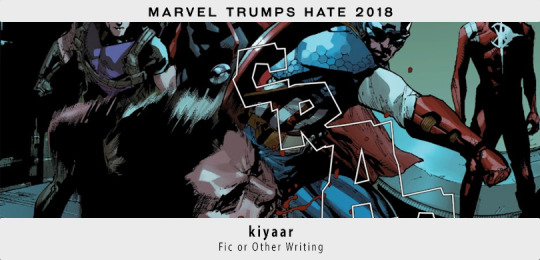
Kiyaar
See Kiyaar’s existing works here.
Preferred contact methods:
Email - [email protected]
Twitter - @besafesteve
Discord - Kiyaar#8496
Preferred organizations:
See the list of approved organizations here.
RAINN
Will create works that contain:
• canon-compliant and canon-based AUs
• explicit/mature content
• dark thematic content
• break-it-mores
• graphic violence/torture/captivity/general whump
• established relationship/messy adult relationships
• S/M, bondage, humiliation, objectification, other kink (ask before bidding)
• consent issues
• tragedy/angst
• divorce, infidelity/breakup scenarios
• character death
• time travel, presumed dead, back from the dead
• alcoholism/substance abuse, PTSD, depression, anxiety, other mental illness, chronic illness, suicide-related things
• historical fiction if canon-compliant
• Tony Stark: transhumanism, self-loathing, terminal guilt
• Steve Rogers: anger management, steve vs. the captain america mythos
Will not create works that contain:
• non-canon AUs: coffeeshop, hs/college, vampire, crossover, etc
• high fluff content
• kidfic, children, family-centric fic
• underage
• non-sexual kink, watersports, scat
• happy endings
• genderswap
• mpreg, A/B/O
• fix-its (possibly negotiable, ASK)
-- Fic or other writing --
Auction ID: 230
Will create works for the following relationships:
1. Steve Rogers/Tony Stark - 616
2. Carol Danvers/Tony Stark/Steve Rogers - 616
3. Carol Danvers/Tony Stark/James Rhodes - 616
4. Carol Danvers/Jessica Drew - 616
5. Rumiko Fujikawa/Tony Stark - 616
6. Tiberius Stone/Tony Stark - 616
7. Tony Stark/Any canonical lover - 616
Work Description:
This is for one fic of at least 2.5k, to be started after June of 2019. My fics always run long (to your benefit!)
Feel free to check out my other works and please check with me first if it's something you're not certain is in my wheelhouse BEFORE YOU BID.
Ratings: Teen, Mature, Explicit
CLICK HERE TO BID ON THIS WORK
The auction runs from October 21 (12 AM ET) to October 27 (11:59 PM ET). Visit marveltrumpshate.com during Auction Week to view all of our auctions and to place your bids!
#kiyaar#mth2018#auction: fic#universe: 616#ship: stony#ship: carolstevetony#ship: carolrhodeytony#ship: caroljess#ship: rumitony#ship: tonytiberius#ship: any#char: tony stark
41 notes
·
View notes
Link
by UnknownShadow
Shouta Aizawa, also known as the underground Pro Hero Eraserhead, is patrolling amidst the dark as a request from Detective Tsukauchi; there's been someone stopping child kidnappings in the middle of the night. However, a couple of medical practitioners and geneticists have been attacked around the same area, too. There's no photo or video evidence of this person's exploits. They're like a freaking specter. Tch, a vigilante, and a sneaky one at that.
That is until he finally corners him. He takes his hiding spot in the dark, and hears the vigilante enter the place. Next he turns his light on, as they need visual reference on this individual; but his eyes go wide when he sees not an adult, but a child. 'What the fuck,' he thought, 'He couldn't even be older than Eri!'
Words: 1484, Chapters: 1/?, Language: English
Fandoms: 僕のヒーローアカデミア | Boku no Hero Academia | My Hero Academia
Rating: Mature
Warnings: Graphic Depictions Of Violence
Categories: Gen
Characters: Original Child Character(s), Midoriya Izuku, Yagi Toshinori | All Might, Aizawa Shouta | Eraserhead, Tsukauchi Naomasa, Tsukauchi Makoto
Relationships: Midoriya Izuku & Yagi Toshinori | All Might, Midoriya Izuku & Tsukauchi Naomasa, Midoriya Izuku & Original Child Character(s), Aizawa Shouta | Eraserhead & Midoriya Izuku, Aizawa Shouta | Eraserhead & Yagi Toshinori | All Might, Aizawa Shouta | Eraserhead & Tsukauchi Naomasa, Aizawa Shouta | Eraserhead & Original Child Character(s), Tsukauchi Naomasa & Original Child Character(s)
Additional Tags: Original Character(s), Original Character Death(s), Minor Original Character(s), Child Soldiers, Implied/Referenced Child Abuse, Post-Traumatic Stress Disorder - PTSD, References to Depression, Angst and Tragedy, Major Original Character(s), Child Abuse, Emotional/Psychological Abuse, Emotional Manipulation, Torture, Past Torture, Psychological Torture, Angst, Angst and Hurt/Comfort, Hurt/Comfort, Emotional Hurt/Comfort, Child Neglect, Attempted Kidnapping, Kidnapping, Missing Persons, Investigations, Detectives, Police, Heroes & Heroines, Vigilantism, Aizawa Shouta | Eraserhead is So Done, Midoriya Izuku is So Done, Tsukauchi Naomasa is So Done, Yagi Toshinori | All Might is So Done, Parental Aizawa Shouta | Eraserhead, Brotherly Midoriya Izuku, Parental Tsukauchi Naomasa, Parental Yagi Toshinori | All Might, Protective Aizawa Shouta | Eraserhead, Protective Midoriya Izuku, Protective Tsukauchi Naomasa, Protective Yagi Toshinori | All Might, Hurt Original Child Character(s), Depressed Original Child Character(s), Original Child Character(s) Need(s) a Hug, Original Child Character(s) Need(s) Therapy, Emotional Hurt, Childhood Trauma, Child Death, Implied/Referenced Abuse, Psychological Trauma, Transhumanism, Human Experimentation, Dehumanization, Unethical Experimentation, Unethical Medicine, Medical Inaccuracies, Medical Procedures, Medical Trauma, Medical Experimentation, Medical Torture, Medical Professionals, It's Not Paranoia If They're Really Out To Get You, Conspiracy, Secrets, Dark Past, Unhealthy Coping Mechanisms, Sad Original Child Character(s), Sassy Original Child Character(s), Angst and Drama, Complex Post-Traumatic Stress Disorder - CPTSD, Heavy Angst
0 notes
Text
Fresh voices: 50 writers you should read now
New Post has been published on https://writingguideto.com/must-see/fresh-voices-50-writers-you-should-read-now/
Fresh voices: 50 writers you should read now
Which debut novel should you reach for this spring? Heres our guide to the most exciting voices in fiction, politics, SF, graphic novels and more
Fiction
Ruthlessly beady eye Sally Rooney. Photograph: Richard Saker for the Observer
Sally Rooney
Irish writer was just 26 when her debut Conversations With Friends took the publishing world by storm last year. Its a barbed, witty page-turner about being young and fragile in the new Ireland, set in a perilously privileged milieu of performance poetry and small magazines. Narrator Frances is out of her depth, negotiating love, sex, friendship and ambition while trying to maintain a brittle sense of self. Rooney has a ruthlessly beady eye and an effortless comic style. Her second novel, a love story across the class divide called Normal People, will be published in September.
Guy Gunaratne
Gunaratne worked as a video journalist reporting on post-conflict zones before writing his blazing polyphonic debut In Our Mad and Furious City, out next month. Set over 48 hours in a north London estate, where the killing of a soldier-boy by a homegrown bredda and the torching of a mosque spark a riot, it reveals London as a conflict zone for its five narrators. These include a would-be grime artist and a teenager resisting Islamic radicalisation, as well as older immigrants from Belfast and the West Indies.
David Chariandy
The Canadian writers masterly second novel, Brother, was published in the UK this month. It interrogates family, community and masculinity as it tells the story of Michael and Francis, the sons of a Trinidadian single mother, coming of age in the 1980s in a poor immigrant neighbourhood. We were the children of the help, without futures. In understated, classically beautiful prose it moves towards disaster with the terrible inevitability of a Greek tragedy.
Jessie Greengrass
Greengrass published her unusual and wide-ranging short story collection An Account of the Decline of the Great Auk, According to One Who Saw It last year; this February she followed it with her first novel Sight , now longlisted for the Womens prize for fiction. Her narrator is agonising over whether to commit to parenthood, looking back on the trauma of her own mothers death and remembering childhood holidays with her analyst grandmother. There are echoes of WG Sebald and Rachel Cusk in this thoughtful, digressive style that swirls together the historical and the personal, but Greengrasss questing intellect and elegant prose are all her own.
Eley Williams
Small presses are making a big noise at the moment, and thats down to such brilliant books as Attrib. and Other Stories, which took the Republic of Consciousness Prize for Small Presses this month. Williams had been publishing her playful stories in magazines for years, and its no surprise to learn that her PhD was on dictionaries: her stories focus on words and meanings, riddling away at the gaps between thought and speech, sound and silence, lovers and strangers. They
Politics and ideas
Holding up a mirror to contemporary Britain Reni Eddo-Lodge.
Mark OConnell
OConnells captivating book about transhumanism and solving the problem of death, To Be a Machine, which saw him navigate some of the stranger byways of Silicon Valley, was shortlisted for the Baillie Gifford prize, the Royal Society science book prize and recently the Wellcome prize. Having taken on immortality, the Dublin-based writer is set to tackle the end of the world, in what promises to be a companionable and quick-witted exploration of apocalyptic anxieties.
William Davies
One of the most interesting commentators on political ideas, Davies teaches political economy and sociology at Goldsmiths, University of London, and is the author of two books, The Happiness Industryand The Limits of Neoliberalism. He is as lively discussing Brexit and the culture of the Home Office as he is the current crisis in capitalism. His next study, due later this year, will be Nervous States: How Feeling Took Over the World.
Suzy Hansen
The author of the elegant and persuasive Notes on a Foreign Country: An American Abroad in a Post-American World, Hansen is based in Istanbul, where she moved from the US following 9/11. Hisham Matar hailed her debut as remarkably revealing a deeply honest and brave portrait of an individual sensibility reckoning with her countrys violent role in the world.
Reni Eddo-Lodge
Eddo-Lodges debut book Why Im No Longer Talking to White People About Race, published last year, has recently won the Jhalak prize it was praised by the judges as a clarion call for action, which not only holds up a mirror to contemporary Britain but also serves as a warning. Marlon James called it essential.
James Bridle
Bridle is an increasingly talked-about artist and writer who considers the relationship between technology, culture and consciousness. Among the subjects of his art are drones and self-driving cars. His ambitious debut book, New Dark Age, which argues that the digital era is radically shifting the boundaries of human experience, is out in July.
Poetry
A fresh take on urban life Kayo Chingonyi. Photograph: Roberto Ricciuti/Getty Images
Kayo Chingonyi
Kumukanda, Zambian-born Chingonyis much feted debut, presented a fresh take on contemporary urban life shot through with an appreciation of traditional modes of living and storytelling. He reflects on identity and race, culture and masculinity with a thoughtfulness and lyrical elegance that conveys anger as well as a tender melancholy.
Ocean Vuong
Night Sky With Exit Wounds picked up a rare double when it was awarded the TS Eliot prize and the Forward best first collection award. Vietnamese-American Vuongs work nods to both New York-school poets such as Frank OHara close observations of street life, frankness about sex and the historical myth-making of Homer. The Eliot judges hailed the definitive arrival of a significant voice.
Richard Osmond
Osmonds job as a wild-food forager makes it unsurprising that his debut collection, Useful Verses, should be such a treasure trove of information. But what gives his poems energy is not just that they exhibit a deft authority on plants and poisons, remedies and roadkill, but that they are equally attuned to human and digital environments. The result is a work that reveals much about the world, both ancient and modern.
Tara Bergin
This Irish poets 2015 collection, This Is Yarrow, is a wryly unpredictable set of poems that challenges our familiarity with the world around us. Last years equally intense and funny The Tragic Death of Eleanor Marx explores the life and eventual suicide of Karl Marxs daughter, the first translator of Madame Bovary. A rare originality of voice and vision.
Hannah Sullivan
The long poems that make up Sullivans debut, Three Poems, are wise and witty, and spaciously unfold an account of a young womans love, disappointment and resilience in New York City, with Heraclitean philosophical musings and autobiographical reflections on birth and bereavement.
Memoir and biography
Compelling topicality and novelty Maggie Nelson. Photograph: Dan Tuffs for the Observer
Paul Ferris
Football memoirs rarely produce great literature but Ferriss The Boy on the Shed is a glistering exception, which sets a short career with Newcastle United against the background of a Catholic childhood in a Protestant stronghold of Northern Ireland. Hes witty, emotional and painfully self-revealing. If, as Alan Shearer intimates in the foreword, a second book is on the way, he may turn out to be the new Frank McCourt.
Edmund Gordon
How do you tell the life story of a woman who was, by her own admission, a born fabulist? Debut biographer Gordon disentangles myth from truth in The Making of Angela Carter, an elegant and well-judged life of the author.
Kapka Kassabova
The Bulgarian-born writer takes a journey through the mysterious region where her home country, Greece and Turkey meet. Borderis a hybrid work that mixes memoir with travelogue as she putters across the land in an old Renault, recording the oral histories of the people she meets and crunching them with what she knows of the deeper past in an attempt to exorcise her own ghosts.
Patricia Lockwood
Already beloved for her silly, often filthy verse, Lockwood burst into the almost mainstream with her memoir Priestdaddy, centring on her father: a Catholic priest with five children and a penchant for guns, prog rock and cream liqueur. While her poetry is brilliantly bizarre, Priestdaddy revealed a dazzling new voice that flourishes in a longer form.
Maggie Nelson
The compelling topicality and novelty of her subject matter earns Nelson her place.The Argonauts is an uncategorisable book, that animates queer theory through the no-holds-barred story of her own love match with a trans man. Here are pregnancy, birth and family-making as you have never seen them before.
Graphic novels
The Arab of the Future Volume 2: A Childhood in the Middle East, 1984-1985 by Riad Sattouf. Photograph: Two Roads
Kirsten Radtke
Imagine Wanting Only This begins with the death of Radtkes uncle Dan from a hereditary heart condition that could kill her and moves through her young life, taking in love, backpacking, loneliness and visits to ruin after ruin. Her memoir is stuffed with fascinating anecdotes and great drawings that show everything from bus-borne squabbles to tight herds of sheep and abandoned cities. It ends in New York, where the 30-year-old illustrator and editor now lives, and this intelligent and passionate work makes you wonder where shell go next.
Hamish Steele
Steele works as an animator as well as a comic book artist, and humour and energy bubble through his work. His debut, Pantheon, a savage take on Egyptian myth, was self-published after a Kickstarter campaign before being picked up by NoBrow. His new book, DeadEndia: The Watchers Test, revolves around three amusement park workers and a genuinely haunted house.
Nick Drnaso
The Illinois native picked up an LA Times book prize for his excellent 2016 debut,Beverly, a series of sad and lyrical interconnected stories. It sets dysfunctional young Americans against an eerie backdrop of highways, motels and couches, lust and despair pushing up against the clean lines and pastel colours of his artwork. Drnasos latest, Sabrina, follows a US airmans investigation of a missing woman.
Emil Ferris
My Favourite Thing Is Monstersemerged to wild applause last year. A brick of a book with something to treasure on every page, it takes the form of the journal of Karen Reyes, a 10-year-old obsessed with drawing, monsters and the fate of a woman who dies in her apartment block. Karen fills the diary with vibrant beasts and the details of her detective work. Ferris makes her humans and monsters leap off the page, and Book 2 (due in August) should be another cracker.
Riad Sattouf
Sattouf spent a decade writing for Charlie Hebdo, but only came to the attention of English-speaking readers in 2015, thanks to The Arab of the Future, which follows his childhood as he moves between France (where his mother was born), Syria (where his father was born) and Libya. The whims of Sattoufs increasingly authoritarian father drive volumes one and two, which mix darkness, dry humour and sharp observation. Volume 3 is out in August.
Crime and thrillers
Books that are sharply observed and crackling with energy Joe Ide.
Jane Harper
Winner of the Crime Writers Association Gold Dagger, Harpers bestselling first novel, The Dry, is both a riveting detective story and a powerful portrait of a small Australian town in the drought-stricken middle of nowhere, riven by poverty and alcoholism. Her second book, Force of Nature, which features the same investigator and concerns an elemental battle for survival in the unforgiving Australian wilderness, lives up to the promise of her stunning debut.
Joseph Knox
Sirens, Knoxs debut, is a pungent slice of urban noir featuring disgraced Manchester detective Aidan Waits. Having blotted his copybook by stealing drugs from the evidence room, Waits is forced to go undercover and finds himself deep in a world of ruthless drug barons and corrupt politicians. The start of what promises to be a classic series as proved by the equally vivid and uncompromising follow-up, The Smiling Man.
Joe Ide
Set in Long Beach, California, Ides novel, IQ, is the start of a projected series featuring Isaiah Quintabe, a modern day African American incarnation of Sherlock Holmes. We learn his back story derailed in high school when his brother was killed, and turning to crime before realising his true calling as he finds out who is trying to murder a famous rapper. A second outing, Righteous, was published in February; both books are sharply observed and crackling with energy.
Sabri Louatah
A bestseller in the authors native France, Savages: The Wedding is the first novel in the Saint-Etienne Quartet. Its the eve of the presidential election, and it looks as if Idder Chaouch is about to become the first Algerian premier. To some, the French Obama holds the promise of a post-racial society based on liberty, equality and fraternity, but not everyone agrees. Exhilarating, sharp-edged, and complex, this is a compelling hybrid of family saga and socio-political thriller.
CJ Tudor
In The Chalk Man, 12-year-old narrator Eddie Adams enjoys communicating with his friends using a secret code of chalk figures until a series of anonymous drawings leads to the discovery of a dismembered girl in the woods. Fast-forward 30 years and Eddie receives a visit from an old friend and a drawing of a noosed stick-man arrives in the post. This assured debut is very much in the Stephen King vein creepy with plenty of menace.
Children and young adult
Grisly, child-empowering edge Little Red by Bethan Woollvin.
Bethan Woollvin
Little Red, a feminist retelling of Little Red Riding Hood with a grisly, child-empowering edge, won Woollvin the Macmillan Illustration prize in 2014. Her second picture book, a prince-free Rapunzel, features the same mixture of stark black and white and a single colour. Her words share this lack of obfuscatory prettiness, a deadpan, terse narrative voice complementing her sharp illustrative style. Look out for her forthcoming Hansel and Gretel.
Joseph Coelho
Overheard in a Tower Block, Coelhos newest poetry collection, was longlisted for the 2018 Carnegie Medal. Arguing parents become electrical forces or duelling knights; the bin-chute mouth of a block is fed the stuff of its residents lives. Rich with metaphor and secret meaning, his poetry is deeply welcoming, and his sensibility is both mythic and urban; his freed Prometheus, unearthed from eons of eagle droppings, hears the god-whisper of a city, the electric thrum of buildings, the digital hiss of a new world.
David Solomons
The Scottish screenwriter represents the best in contemporary comic writing for children splendidly zany, full of irresistible trivia,but never scrimping on the emotional undertow that ensures longevity and heart. His first book for children, My Brother Is a Superhero, is subtitled I could have been one too, except I needed a wee; the story of comic geek Luke and his older brother Zack, unfairly given superpowers by a visiting alien, it won the Waterstones prize for childrens fiction in 2016, and its two sequels have since been flying off the shelves.
Lucy Strange
The Secret of Nightingale Wood, Stranges debut novel for age 8-12, is set just after the first world war, and features Henry, a determined heroine grieving her brothers death, protecting her younger sister Piglet, and contending with sinister doctors who conspire to commit her mother to an asylum. Strange elegantly blends a sense of period with compelling emotion and excitement. Her new novel, Our Castle by the Sea, is due in November.
Tomi Adeyemi
The Nigerian American authors debut, Children of Blood and Bone, has generated considerable excitement, with film rights already sold. The first in a trilogy, this ambitious book is told from three perspectives; central is that of Zlie Adebola, who takes on the monarchy in a bid to restore magic to the world of Orisha.
Literature in translation
Brilliant evocations Maylis de Karangel.
Maylis de Kerangal
Winning last years Wellcome prize for Mend the Living, her brilliant evocation of a day in the life of a heart as it is rushed from one body to another, should raise the French authors profile, but as yet only two of her novels have made it into English. In both she makes character subservient to scenario, whether dealing with coronary transplant staff or workers on a six-lane suspension bridge in a fictional US town.
Samanta Schweblin
Argentinian Schweblins brilliant and terrifying debut, Fever Dream, unfolds like a hallucination. A sick woman is confronted with a revenant child in a dialogue that combines the superstitions of a rural society with fears about agricultural abuse by big business, in a novel that was shortlisted for last years Man Booker International prize.
Olga Tokarczuk
This time last year, the Polish novelist was the biggest star youd never heard of, but Flights put her on the map. This dazzling novel of fragments makes a passionate plea for connectedness through stories that somersault through time and space. Her back catalogue is now being published, with the Blakean Drive Your Plough Over the Bones of the Dead due this year, followed by her historical epic, The Books of Jacob, one of the biggest literary bestsellers in Polish history.
Andrs Barba
After surviving the car accident that killed her parents, a wounded and traumatised seven-year-old girl is sent to an orphanage with her only surviving friend, a doll apparently brought to life by her distress. In Such Small Hands, Barba plays with the conventions of the ghost story to create a powerful fable of the malice and the erotic power play of children too young to put their fears into words.
Ahmed Saadawi
Absurdist morality fable meets horror fantasy in Frankenstein in Baghdad, as a victim of sectarian violence is brought back to life in the aftermath of the US invasion of Iraq. Saadawi unspools an apparently endless causal chain of folly, corruption and tribalism.
Science and nature
Witty and elegant Cordelia Fine. Photograph: David Levene for the Guardian
Eugenia Cheng
The mathematician remembers the day her mother first told her about graphs she felt as if her brain was contorting, and its a feeling she still gets when doing research. Its one her readers can share. Beyond Infinity begins with an energetic exposition of endlessness, before exploring the mathematical territory the concept opens up with the help of iPods, snorkelling and Winnie-the-Pooh. The Art of Logic is due in September.
David George Haskell
On a cold January hike in 2004, Haskell, a biologist, found himself confronted with a choice. He could carry on writing scientific papers, following his enthusiasm for poetry and meditation on the side, or he could bring these interests together. The result was The Forest Unseen, a lyrical account of the year he spent returning to that very spot. His 2017 book The Songs of Trees explores the interconnectedness of nature through portraits of 12 individual trees.
Lindsey Fitzharris
Fitzharriss hugely entertaining debut Read more: http://www.theguardian.com/us
0 notes
Text
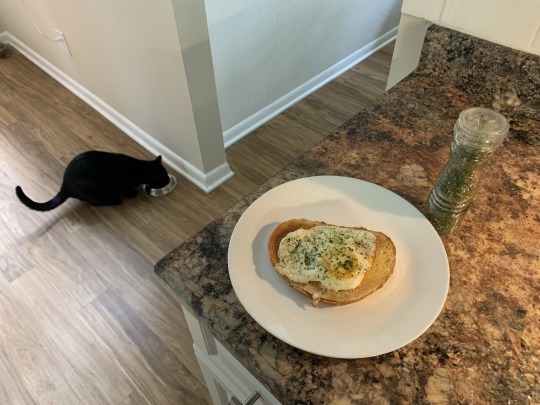
the last egg and last toast or happy saturday breakfast imaginary constructs and also the reward for finishing all of the eggs is more eggs and the reward for more eggs is carbonara or happy future carbonara imaginary constructs
#once transplanted still sustained#eggs#toasts#pauses#boba#saturday#root access#kneeless reindeers#hedonic treadmills#anniversaries#the tragedy of transhuman relationships#time lords#tributaries#north fulton county#georgia#end of message
30 notes
·
View notes